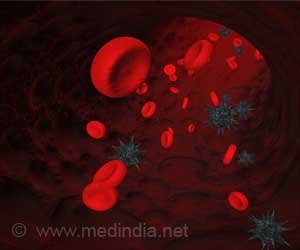Weed Killer Agent Orange May Increase the Risk of Blood Cancer Among Veterans

Agent Orange is an herbicide that was utilized by the United States military in Korea and Vietnam to clear foliage during combat. It has been associated with sarcomas and B-cell lymphomas, but not MPNs or blood cancers to date (
).
MPNs are associated with serious cardiovascular events and people with this disease have decreased overall survival chances. But until now, researchers haven’t been able to fully ascertain whether Agent Orange exposure truly leads to the development of myeloproliferative neoplasms (2✔ ✔Trusted Source
Myeloproliferative Neoplasms: A Contemporary Review
Go to source
).
Does Agent Orange Cause Deadly Blood Cancer in War Veterans?
To answer this, researchers have conducted the biggest population-based study to date. They utilized the Veterans Affairs Informatics and Computing Infrastructure (VINCI) database and examined records of 93,269 MPN patients among 12,352,664 veterans over 17 years.
Advertisement
The researchers used veterans from the state of Illinois as a control population since Illinois is highly representative of the United States according to the US Census Bureau. The odds of Agent Orange exposure among MPNs are 1.63 times greater than the odds of exposure among controls.
When comparing people with MPNs vs. age, gender, and race-matched controls, there was more clotting in the arteries (37% vs. 18.5%), more clotting in the veins (14.8% vs. 5.2%) and more bleeding events (39.1% vs. 13.5%), respectively.
People with MPNs had more hypertension (75.5% vs. 43.2%), diabetes (31.2% vs. 19%), and more heart failure (26.1% vs. 11%) than age, gender, and race-matched controls, respectively.
The odds of Agent Orange exposure among matched controls with arterial clots are 1.38 times greater than the odds of exposure among controls without arterial clots. The odds of Agent Orange exposure among MPNs with arterial clots are 1.49 times greater than the odds of exposure among MPNs without arterial clots (3✔ ✔Trusted Source
Association of Agent Orange and myeloproliferative neoplasms, thrombosis, and bleeding among veterans
Go to source).
Because the findings only point to possible associations and not causes, researchers will need to dive more deeply into the biology of the disease. Specifically, they want to look at JAK2 mutations, which are one of the three driver mutations of MPNs that can cause uncontrolled proliferation of stem cells. JAK2 has also been associated with an increased risk of clotting.
Several associations between Agent Orange and health disorders are not well understood and we hope our work helps uncover a few of these. Researchers are proud of the fact that their work was selected for a 2023 Conquer Cancer Merit Award and they will be using those funds to further our research efforts.
References :
- Increased risk of head and neck cancer in Agent Orange exposed Vietnam Era veterans – (https://www.sciencedirect.com/science/article/abs/pii/S136883751930394X)
- Myeloproliferative Neoplasms: A Contemporary Review – (https://jamanetwork.com/journals/jamaoncology/fullarticle/2194736)
- Association of Agent Orange and myeloproliferative neoplasms, thrombosis, and bleeding among veterans – (https://ascopubs.org/doi/abs/10.1200/JCO.2023.41.16_suppl.7011?af=R)
Source: Eurekalert
Source link
#Weed #Killer #Agent #Orange #Increase #Risk #Blood #Cancer #Among #Veterans



